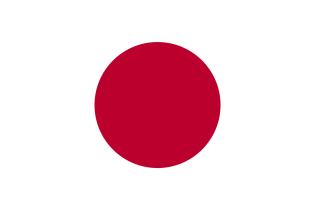Empire of Japan
| |||||
 | |||||
|---|---|---|---|---|---|
| National Flag | |||||
| Astrography | |||||
| Sovereignty | |||||
|
Formation |
11 February 660 BCE
November 29, 1890 | ||||
| Demographics | |||||
|
Demonym(s) |
Japanese | ||||
|
Population |
22,794,200,000 (2285 estimate) | ||||
|
Languages |
| ||||
| Infrastructure | |||||
| Astropolitics | |||||
 | |||||
| Starmap Roundel | |||||
|
Classification |
|||||
|
LoN Status |
|||||
|
Membership(s) |
| ||||
The Empire of Japan, also known as the Japanese Empire, or Japan is a Legacy Nation situated predominantly in the Great Orinoco. It is the fifth-most-populous nation in the Orion Arm. It is a Superpower noted as the historic leader of the Co-Prosperity Sphere, has been granted observer status in the Axis Powers, and is a Security Council Member of the modern League of Nations.
History
Pre-First Scinfaxi War
The first known habitation of the Japanese archipelago on Earth dates to the Upper Paleolithic, with the beginning Japanese Paleolithic dating to c. 36,000 BC. Between the fourth and sixth centuries, its kingdoms were united under an emperor in Nara, and later Heian-kyō. From the 12th century, actual power was held by military dictators (shōgun) and feudal lords (daimyō), and enforced by warrior nobility (samurai). After rule by the Kamakura and Ashikaga shogunates and a century of warring states, Japan was unified in 1600 by the Tokugawa Shogunate, which implemented an isolationist foreign policy. In 1853, a United States fleet forced Japan to end its economic isolationism, which led to the end of the shogunate and the restoration of imperial power in 1868. In the Meiji period, the Empire of Japan pursued rapid industrialization and modernization, as well as militarism and overseas colonization - emerging as a great power following the First Sino-Japanese War, the Boxer Rebellion, the Russo-Japanese War, and the Great War. A failed coup by the Kōdōha (Imperial Way Faction) on February 26, 1936 resulted in the assassination of several politicians and the appointment of Kōki Hirota as Prime Minister of Japan.
In March of 1933, Scinfaxi biological material was discovered in the area of Honshu affected by the Sanriku Earthquake. Following the Muroto typhoon in September of the next year, similar material and environmental disturbances are identified.
References
- "Japanese Empire Rifleman". Champlain Group.
| Superpowers of the Orion Arm |
|---|